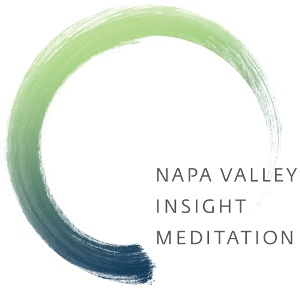
There is a belief, I’ve often heard, repeated that meditation practice, and metta or loving-kindness practice in particular, is self-indulgent. That by focusing so much attention on ourselves, we are withdrawing from the problems of the world. This view, however, ignores the fact that without a sense of self-love and compassion for ourselves, our actions in the world can often end up doing more harm than good, even if our intentions are noble. As Sharon Salzberg writes “Generosity coming from self-hated becomes martyrdom. Morality born of self-hate becomes rigid repression. Love for others without the foundation of love for ourselves becomes a loss of boundaries, codependency, and a painful and fruitless search for intimacy.”
Loving-kindness and compassion are the mental states at the root of wise action. Given the state of the world today, and the immense challenges and emotional difficulties that can arise for us as we face these challenges, deepening our meditation practice by cultivating metta is one of the most effective actions we can take to help alleviate the suffering of others. Practicing metta strengthens our ability to bring greater compassion and awareness to everything — every moment, person, situation, emotion, thought, experience. The more we are able to be present, clear and non-reactive to the way things are, the greater the chance that our actions will help others, rather than bring harm.
Donald Rothberg writes in his book The Engaged Spiritual Life, that “our times call for both spiritual and social commitments. There is the irony of attempting to overcome self-centeredness, hatred, fear and confusion through meditation practice while ignoring the cries of the world.” It is the cries of the world that call us to begin the process of self-transformation. Without transforming the world reflected within us, there is no telling how our actions may unconsciously affect others. The gift of metta is that it can transform our minds so that we are able to act in ways that benefit ourselves, as wells as others. This is a gift we give to the world.
Loving Ourselves Takes Courage
Like many western practitioners of Buddhism, when I first started practicing loving-kindness meditation I found it most difficult to focus this energy towards myself. I can remember being on retreat and having no problem practicing the metta phrase for others – my friends, my mentors, people I barely know, even some of the more unpleasant people in my life – yet, when I’d try and direct that love towards myself, I’d balk. I’d often feel guilty, anxious and annoyed. The practice seemed so pointless and completely self-absorbed.
What I’ve learned over the past ten years is that without self-love, much of the energy I put into helping others is completely co-dependent. I felt pain and loneliness inside and was trying to heal these wounds by playing the saint. As I’ve worked with the metta phrases over time, directing them towards myself as well as other, I have felt a shift in consciousness and a greater sense of acceptance. I fee l like I’m less likely to hurt others out of a desire to have my “needs” meet. I still slip up, but that’s why they call it a practice. We move forward slowly, learning to love ourselves more, bringing greater awareness to the layers of pain and sadness that may surround our hearts, and then allowing our light to radiate out into the world.
Metta and Wise Intention
Metta practice can help us cultivated wise intention, part of the eight fold path leading to the liberation of suffering. It does this by helping us overcome negative and unwholesome thought patterns by bringing awareness to our intention to foster greater goodwill, compassion and kindness towards ourselves and others. Silently directing phrases or “well-wishes” to ourselves, a benefactor, a dear one, a neutral person, a difficult person, and all beings helps us to “water” the seeds of joy, peace, mindfulness, understanding, and love that already exist in our minds. This in turn strengthens those thought patterns that lead us to take wholesome actions in the world.
Neuroscience tells us that setting an intention ‘primes’ our nervous system to be on the lookout for whatever will support our intentions. In his book “The Mindful Brain”, Daniel Siegel talks about the effect paying “attention to intention” has on our brain and how this affects our experience of our surroundings. He writes, “Intentions create an integrated state of priming, a gearing up of our neural system to be in the mode of that specific intention: we can be readying to receive, to sense, to focus, to behave in a certain manner.” In other words, when we pay attention to our intentions, we are more likely to notice and connect with the relevant actions, opportunities and people that will make our intentions come to fruition.
As we pay attention to our intention to cultivate greater goodwill and compassion by practicing metta, we are training our brains to connect with the wholesome thoughts that can bring us greater happiness. We are also creating the conditions that allow us to let go of unwholesome thoughts grounded in greed, hate and delusion that bring greater suffering. That is a gift to the world. That is the power of metta.
Instructions for Practicing Metta Meditation
For those new to metta, below is a guided loving-kindness (metta) meditation by Sharron Salzberg. May you be happy and peaceful.

